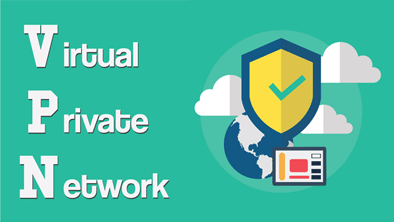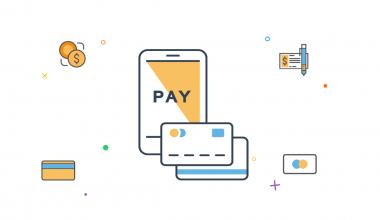The Internet is amazing for children these days. They use it to study reports from schools, to interact with students and teachers, and also to play mobile games. But, internet access often involves threats such as offensive content, cyberbullying, and harassment online.
Using websites and apps where children communicate with each other, some offenders may act as a teen or a child looking for a new buddy. These attackers can prompt the child to share private information, such as telephone number or address, and encourage the children to contact them, having their telephone number from caller ID.
The more you’re informed about threats online, the more you can keep your kids secure. We have a helpful resource to help you stay safe online with your kids. The following are some of the tips you should always follow for the safety of your kids.
Internet Safety
Parents should always keep encouraging their children to share their personal experiences with online activities. Children may be some time may feel uncomfortable to share some harassment or abusive content with the parents. Parents should always ask about the internet activities of kids and should also share their reviews with children. All family members should conduct internet activities with kids so that they can build some confidence to share their reviews about online activities.
Use parental controls
All the devices have already installed parental controls. Windows 7 got so many easy and simple features that let you control some programs, limit some of the games which you think are not suitable for your kid, filter and monitor the web content, and parents can also set some specific times for the internet access. Parents can also place limitations on all Internet using devices like mobile phones, laptops, and computers
Manage the funds/ Spending Money
Children can spend a lot of money in many forms, including in-app purchases to online shopping. Multiple reports and surveys indicate that more than 40% of the children use mobile devices for transactions and around 50% of children are using mobile apps for online shopping
Most of the free apps earn money by encouraging users to buy that game. Kids can waste money online by any app trap like some online game purchasing. If children have unregulated phones and tablets and links to bank cards, it is quite easy to spend money on online shopping like movies, games, and physical products. Parents should always manage their child’s access to all the funds.
Cyberbullying
If you’re not familiar with Cyberbullying, it is when some individuals use the electronic and online contacts to harass, threaten, and scare children and teenagers. They can also target elderly people, but they prefer to aim for children and teens.
Cyberbullying can be represented by any of the following:
- Spreading false allegations on social networks
- Sending mean and warning messages
- Spreading the private/shameful images or videos
- Hacking someone’s social account
- Claiming to be someone else
- Sending explicit messages
Sexual Predators/ Child Abusers
The Web is often used by child abusers to identify and target possible victims. The main objective for child molesters online is to win the children’s confidence to the extent where they can force them to meet face to face.
If that occurs, the child will end up being the target of sex predators or worse. However, a sexual predator could be able to persuade hi/her to include his / her mates as well. Unfortunately, this usually happens occasionally, to one out of twenty kids admitting to arranging a private meeting to a friend they met on the Internet.
Using the Internet
A new survey stated that, while most kids under 5 are using the Internet, many American people still believe that children must wait until they turn 13 to link to the Internet without oversight. With many young kids using the Internet on a regular basis, parents need to explore Internet security with the children and encourage them to recognize and prevent dangerous scenarios.
So, parents must keep in mind this point before giving a smartphone to the alone kids under 13.
Emphasize on the Privacy
Parents should explore internet privacy with their kids that why online privacy exists, how it is abused, as well as why posting your personal information on the Internet is harmful. Give them similar explanations about what private information really is, like your address, name, and mobile phone numbers, social security numbers, account credentials and describe how outsiders can maliciously misuse this data and how they can use your private photos and videos against you
Digital Overload
Children spend on monitors an average of six hours a day-yikes! There really is no question that it would have an effect on the social, cognitive, physical, and psychological rates of kids. Digital fatigue relates to anxiety arising from the heavy use of media and mobile technology.
Digital overload includes lack of energy, impatience, stress, tiredness, lack of passion, and forgetfulness. Parents must limit screen time and create digital family hours. You should also ban all the mobile phones and tablets from the bedrooms of your kids.
Emphasize the risks of using public wifi
Teenagers enjoy hanging out with friends and family in coffee shops, shopping malls, and other public places, and they also may use Public wifi. You will realize, though, that linking the mobile to a public wifi hotspot can be risky as there is typically a lack of adequate security for public networks.
To avoid online scams and hacks by using Public wifi, parents must have a trustworthy VPN for their kid. You can install the RitaVPN application on android and ios devices. This Virtual Process Network Service provides the best security against hackers and internet packet sniffers. VPN download
Setting an Example
Kids always follow the things which they regularly see. Be ideal for your kids so that they always follow you. Stop continuing checking your phone and stop using social media sites in front of your children. You must stay with yourself if you expect your kid to be safe and responsible online.






